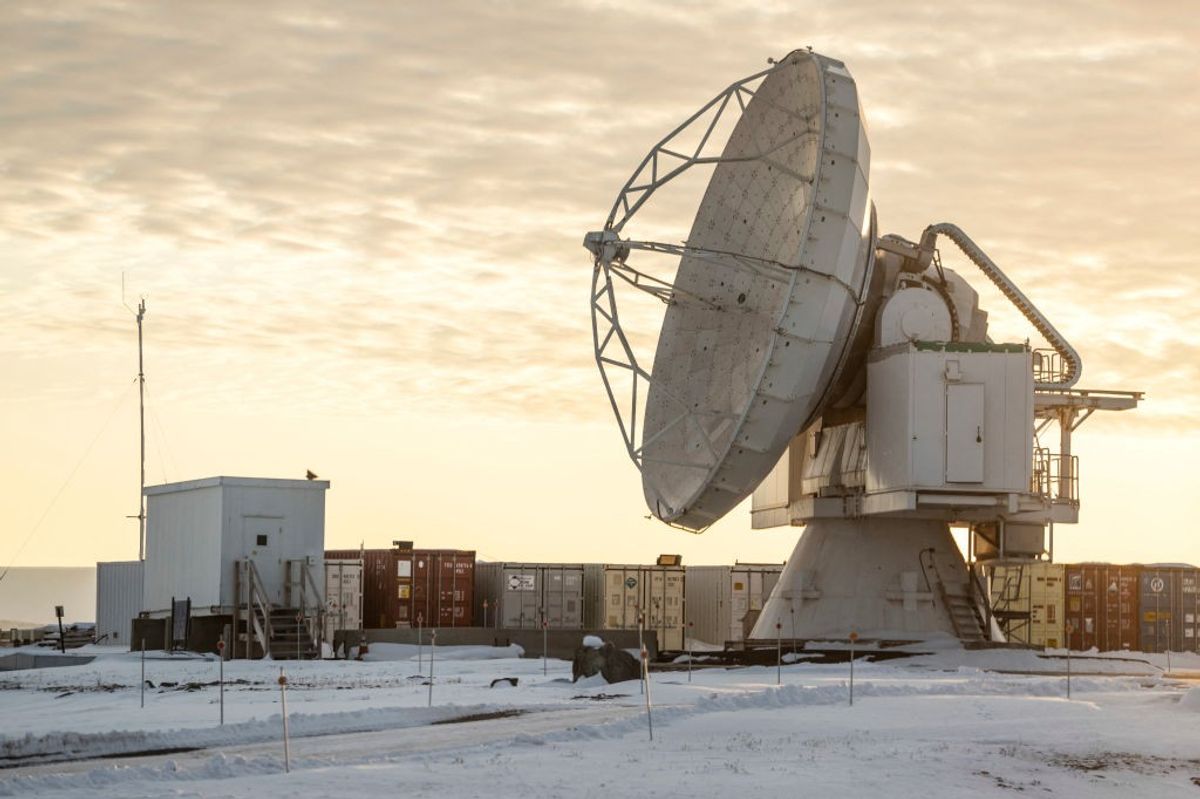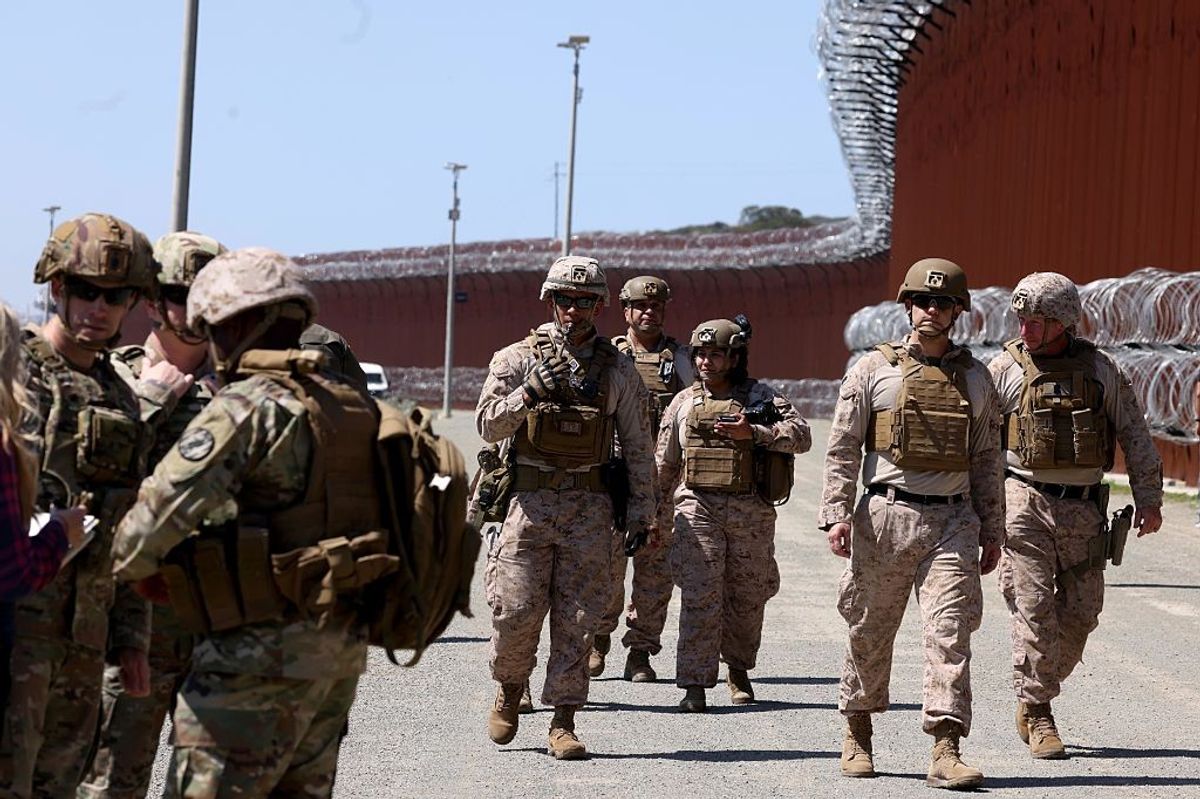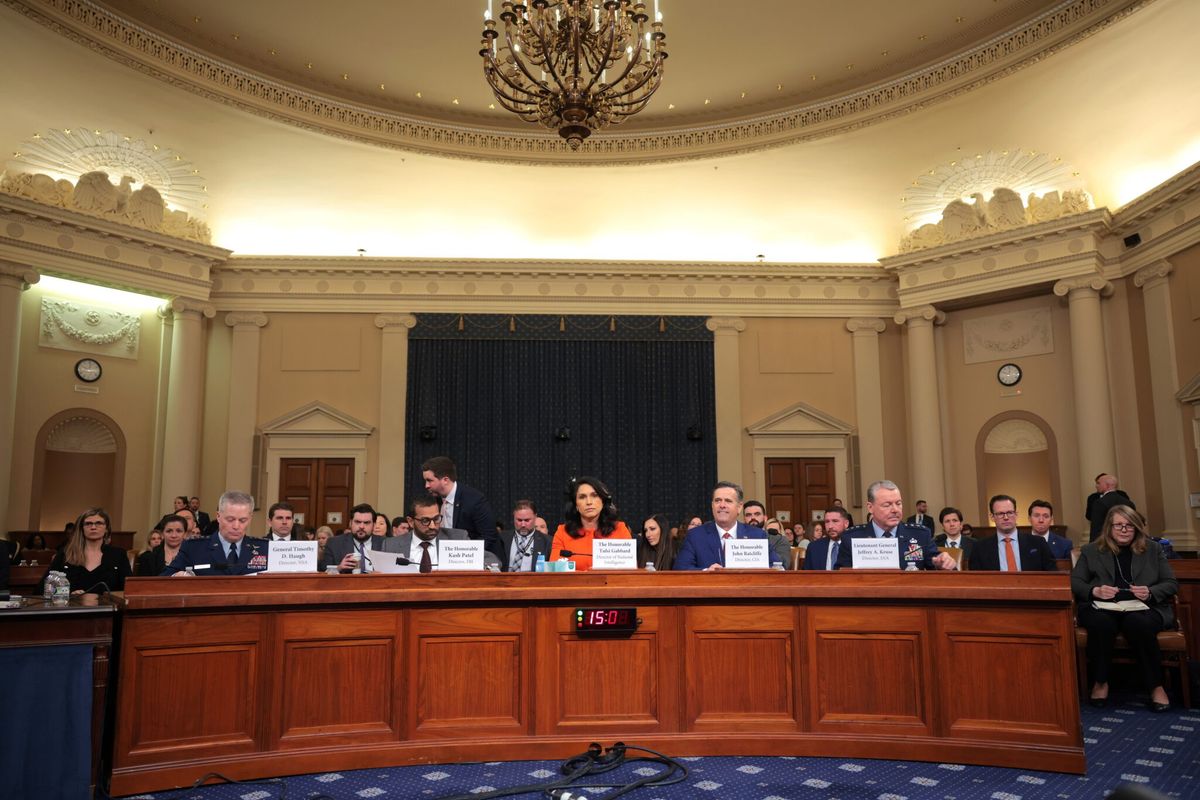OPINION — As President Biden and former President Trump prepare to face off in the first of their 2024 presidential debates, The Cipher Brief polled three dozen national and global security experts to ask what was top of mind for them in this first debate. We spoke in-depth with Cipher Brief Expert John McLaughlin, who served as acting director and long-time deputy director of the CIA to talk about the impact of presidential candidate debates since the first showdown between John F. Kennedy and Richard Nixon, during the 1960 campaign. Our conversation has been lighted edited for length and clarity.
The Cipher Brief: You’ve been watching and listening to presidential debates for a long time.
McLaughlin: I go back to, believe it or not, to Kennedy-Nixon. I remember that debate. I was in college, and that's the first one I saw. And of course, it's now legendary. There was no live audience, and all the lore about it – on the radio, Nixon won, but on TV, Kennedy won – I remember all of that. It was during a period when I was enchanted with Kennedy as a young college student, and that really changed my life in the sense that his appeal was such that I changed my major and went into political science.
Today, as a former college debater, it's frustrating to even hear these called “debates” because they’re so performative. And all of the commentary on television is about how the candidates will look, how they will appear, what impression they will give. But in fact, in a real debate, there's an affirmative, and there's a rebuttal. It's very disciplined. Facts matter. And here, it's whoever lands the punchy sound bite who will be judged the winner, which has nothing to do with being president, nothing at all. Zero. And that's one of the pathologies of our politics right now, I think.
The Cipher Brief:It actually began in that first debate you watched. That's where this all started?
McLaughlin: Yes. It began in the sense that television, and its visual impression, was so powerful.
It's not just for the President anymore. Cipher Brief Subscriber+Members have access to their own Open Source Daily Brief, keeping you up to date on global events impacting national security. It pays to be a Subscriber+Member.
The Cipher Brief: If you were asking the questions, what would you want to hear from the two candidates?
McLaughlin: As far as Ukraine is concerned, what I would like to hear from them is some sense for how they think this ought to end, and what they think the stakes are. I think we understand that pretty well with Biden, but I don't think we understand it with Trump.
With Trump, the popular impression goes back to that press conference he had in Helsinki, in which he refused to acknowledge Russian responsibility for interfering in our election. So I'd like to hear if he's changed his mind. Or is he still enamored of Vladimir Putin?
I think the Ukraine situation is really the pivotal event in international affairs. Without that war, we would not be quite as worried about Taiwan. We’d be worried, but we're much more worried because right now, with our commitment in Ukraine, it becomes much harder to imagine how we would deal with Taiwan in terms of logistics replenishment in a war. Without Ukraine, you would not have this coalescence of adversaries – Russia, China, North Korea and Iran. Yes, they were close before, yes, they worked with each other. But you wouldn't see Putin making a state visit to Pyongyang. You wouldn't see Iran building a facility for manufacturing drones in Russia. Remember that Russia and China were both parties to the 2015 nuclear agreement that limited Iranian production of nuclear explosive material. So I think Ukraine has changed the world.
If the candidates don't have a clear view of that, you don't get a clear view of anything else.
The Cipher Brief: What might you ask of the candidates, in terms of that axis of adversaries?
McLaughlin: Let's start with China. I would like to hear them address a fundamental question: How do we avoid a war with China and yet maintain our influence and our preeminence and our relationships with our Asian allies? Avoiding a war with China is essential. People want to be tough about China. They want to flex their muscles. Even asking the question as I asked it would evoke charges of weakness in today's Washington.
I am convinced that the Chinese do not want a war, either. I'm convinced of that. And so the question then for Biden and Trump is, How do we deal with China in a way that preserves our interests, but avoids a war which could mean destruction for the world?
Subscriber+Members have a higher level of access to Cipher Brief Expert Perspectives and get exclusive access to The Dead Drop, the best national security gossip publication, if we do say so ourselves. Find out what you’re missing. Upgrade your access to Subscriber+ now.
With North Korea, the question would be, How should we deal with the likelihood that the North Koreans have an intercontinental ballistic missile capable of hitting us, and at the same time are probably now in a position to fill in some of the blanks in their development process? The things they need the most, I think, are guidance systems and some ways of ensuring that a reentry vehicle can survive a trip from space through Earth's atmosphere and not burn up. I don't know that they don't have those things, but from all the open-source material I can read, it seems to me those are two of the major things missing from their kit bag when it comes to getting to closure on an ICBM.
And yet, open source would also tell us that they can send a rocket now far enough up into space. They can separate these stages at altitude. They can ignite stages at altitude, and if you lower that trajectory, they can hit the United States. But the question still remains, can they actually put all that together in a way that would give them any kind of precision? That said, of course, a nuclear missile going off anywhere in the United States is a disaster.
And related to that, I would want to hear the candidates talk about how we limit the proliferation of nuclear weapons, because ultimately that is the nightmare that exceeds even the pandemic. We are starting to lose sight of the fact that we can destroy humanity and that the non-proliferation regime is weakening, because we are not currently in negotiations in any serious way with the Russians. We don't yet have a strategy for renewing the START agreement, for which (Russian President Vladimir) Putin has at this point suspended any kind of talk or implementation.
And to the degree that countries, particularly in Asia, are worried about what happens if Trump wins, it’s that the confidence in our nuclear umbrella diminishes. So how do the candidates ensure that our allies are confident of our support, the Europeans as well? How do we ensure that our allies have confidence in our fidelity to agreements we've made with them, and pledges we've made to them both in Asia and in Europe?
Then on Iran, this is one to really hammer Trump on. I remember when he withdrew from the Iran nuclear agreement, how stupid it was. I just thought at the time it was maybe the dumbest single thing he did in foreign policy. He and (Secretary of State Mike) Pompeo thought it was a bad agreement, Republicans thought it was a bad agreement, but it betrayed their lack of understanding of how hard it is to get any agreement.
The Obama administration was very clear that they didn't think it was a perfect agreement, that it didn't include missiles, it didn't include any agreements about regional terrorism. It was only reducing nuclear explosive material and the ability to create it. And I thought at the time, to get a sovereign country that really wants nuclear weapons to agree to do that and to agree to inspections was no small feat. But Trump and Pompeo and others in that administration said, It's a bad agreement. Sooner or later, they'll break it. Well, there's something to be said in international relations for buying time, because it opens what the Italians called “possibilismo.” In other words, it opens possibilities. You've got time, you have possibilities. And knowing how the U.S. government works, that's important. You can focus on something else and work on this a bit at a time. But Trump pulled out of it. They pulled out without any idea of what they were going to do in its place. It's the foreign policy equivalent of Trump saying, I'll get rid of Obamacare and replace it. Well, he didn't do either. But in the case of Iran, he got rid of an agreement, and didn't replace it. And now what do we have? We have an Iran that is on the threshold of becoming a nuclear weapon state.
I don't think they'll actually do a nuclear test, because they want to get to the point of everyone understanding that they can be a nuclear weapon state within a couple of weeks, but not provoke everyone by becoming one. So I would ask them about Iran. How do you plan to deal with the fact that following the withdrawal by the Trump administration, we now have an Iran that is on the verge of becoming a nuclear weapon state? What would you do about that? Because that injects an element of uncertainty into the Middle East that is beyond anything we've contemplated before.
And at that point, if one of these administrations can't figure out some way to normalize relations between Saudi Arabia and Israel, which seems to me now hopeless, then you've got an Iran that is going to scare other Middle Eastern countries and tempt them to go down that path. Then you get to the Middle East situation. The Israelis and the Palestinians. And I would ask them, Do you really think a two-state solution is ultimately the way we have to end this? And the reason I would press on that is because I think it's now almost impossible. The West Bank is now like Swiss cheese, there are so many settlements there, you can't move from one place to the other, one town to the other, without going through a checkpoint. So how do you have a functioning Palestinian state now? And how do you cope with Gaza, once the Israelis are done there? No Arab countries are going to go in there and take responsibility for security or rebuilding.
At this point, this is – unfairly – a real vulnerability for Biden, because his peace plan isn’t coming together. And I think Netanyahu is just waiting for Trump, hoping Trump wins, and then Netanyahu will have a freer hand and maybe a partner who would help him survive. One thing I would add to all this is the national debt. Because we talk about all of these things that we want to do as though they're all doable. But our debt is approaching levels where we have to stop it because our credit rating is falling. It is now at the point where it will begin to affect social security and Medicare. And the reason all of this relates to foreign affairs is that when you take out the entitlements in the federal budget, there are really only a couple of places that are fungible, that you can play with. One of them is defense, and the intelligence community.
Now, the standard answer that politicians give to this is we'll grow our way out of it. We will have an economy that will grow and then we'll be able to deal with it. They've been saying that for years, but even people who've been relaxed about the debt, like the economist Paul Krugman, are now saying, we're at the time now where the political class really has to do something about it. And everything we're talking about costs a lot of money. So if Biden and Trump don't really talk about the debt, then a lot of this is just pie in the sky. Because the big problem in government, thinking back to even my old job, is that you're constantly having to make choices among what are your priorities. You constantly have to choose. In an intelligence world, that means you're often choosing to fail, or to risk failure, at something where you know you could do something, but you can't afford to do it. And so far, we're just, as a government, pretty irresponsible about it.
Have a perspective to share based on your experience in the national security field? Send it to Editor@thecipherbrief.com for publication consideration.


















